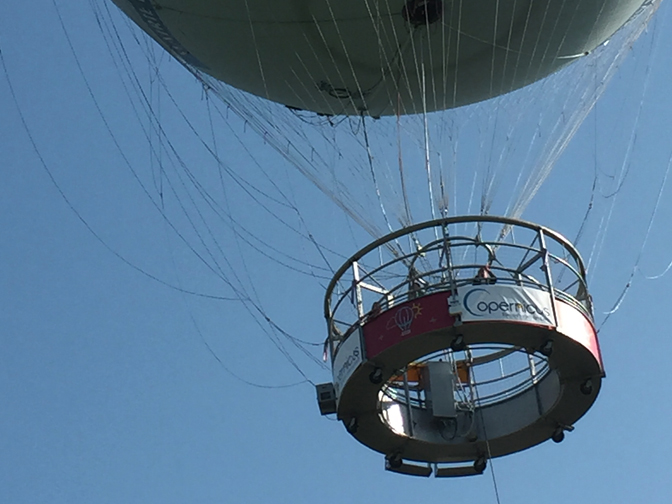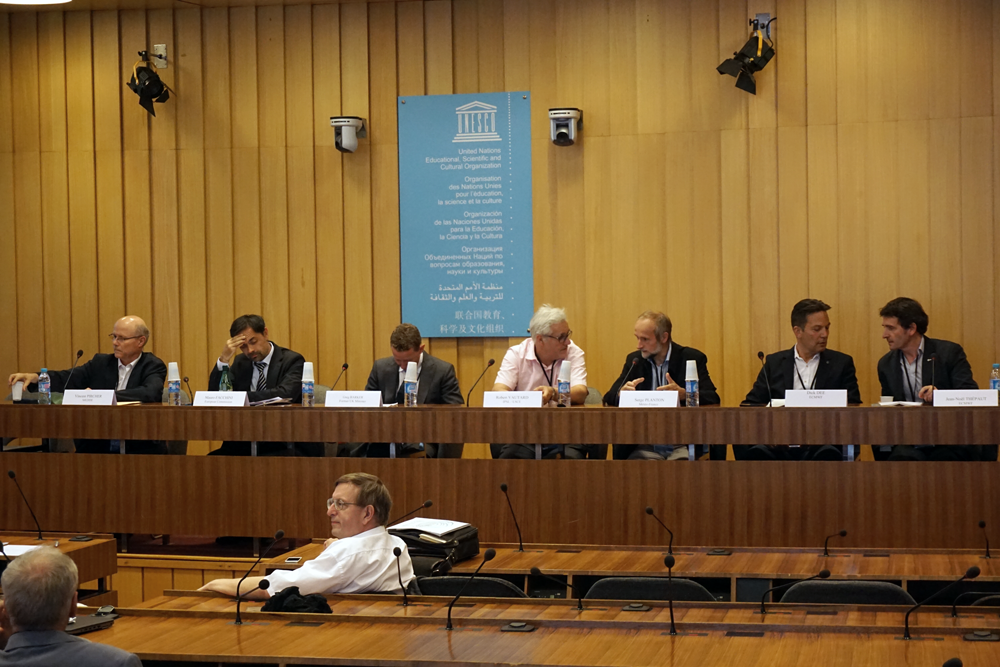

ECMWF used the occasion of last week’s conference on Our Common Future Under Climate Change in Paris to explain how it will implement the EU-funded Copernicus Climate Change and Atmosphere Monitoring Services.
The international scientific conference, which took place from 7 to 10 July, coincided with the launch of new websites for the two services. Information and updates on the Copernicus Atmosphere Monitoring Service (CAMS) and the Copernicus Climate Change Service (C3S) can now be found at http://atmosphere.copernicus.eu/ and www.copernicus-climate.eu/, respectively.
Monitoring atmospheric composition
The heads of CAMS and C3S, Vincent-Henri Peuch and Jean-Noël Thépaut, were keynote speakers at a side event on Monitoring Atmospheric Composition in a Changing Climate on 9 July.
The event focused on the ways in which CAMS can contribute to our understanding of climate change and support decision-making on anthropogenic emissions.
Changes in atmospheric composition entail changes in radiation budgets and in microphysics, including cloud and rain processes, and are thus key drivers of climate change. In addition to CO2, other greenhouse gases, such as CH4 and N2O, reactive species such as ozone, and different aerosol types also play a role and require monitoring to understand our changing climate.
The event highlighted how services such as CAMS can provide reliable information for evidence-based policy making on atmospheric emissions by human activities, with the issues of climate and air quality being considered together.

The participants in the side event flew in a balloon over Paris.
CAMS is making the transition to operations this year with the procurement of the various service elements well under way. The new website has the usual news and event sections but also provides instant access to ‘today’s forecasts’ of reactive gases, aerosols, European air quality, the ozone layer and CO2. It also links to the CAMS catalogue page, which gives access to the full range of available services and products.
The Climate Change Service
Jean-Noël Thépaut gave a presentation and chaired a panel discussion on C3S at a parallel session also held on 9 July, entitled The Copernicus Climate Change Service: a European answer to Climate Change Challenges.
The discussion showed that there is great interest in C3S as a source of authoritative information on climate change in Europe and worldwide. The success of the global average temperature map launched on the same day highlighted the potential benefits of releasing this kind of information regularly.
As described in a press release, the latest ECMWF reanalysis results show that 12-month running averages of global temperatures reached a value in June 2015 relative to 1981–2010 that is comparable with peak values experienced in 2005 and 2009–10.

The parallel session on the Copernicus Climate Change Service took place at the UNESCO headquarters in Paris.
At the same session, the Head of ECMWF’s Reanalysis Section, Dick Dee, gave a presentation on Climate monitoring based on observations. He explained that the Climate Data Store, which will be at the heart of C3S, will give access to climate observations made by different observing systems. Reanalysis will combine the data into a consistent view of the global climate.
The need for science and policy-making to work closely together, so that policies can be based on accurate, science-based information, was another major theme in the discussion. Engagement opportunities such as the Paris conference will help to develop C3S, which is currently at the proof-of-concept stage, so that it meets user expectations.
Copernicus is the European Union’s flagship Earth-observation programme. The programme ensures operational monitoring of the atmosphere, oceans, and continental surfaces, and will provide reliable, validated information services for a range of environmental and security applications.
ECMWF is implementing the Copernicus Atmosphere Monitoring Service and the Copernicus Climate Change Service on behalf of the European Union until the end of 2020.
